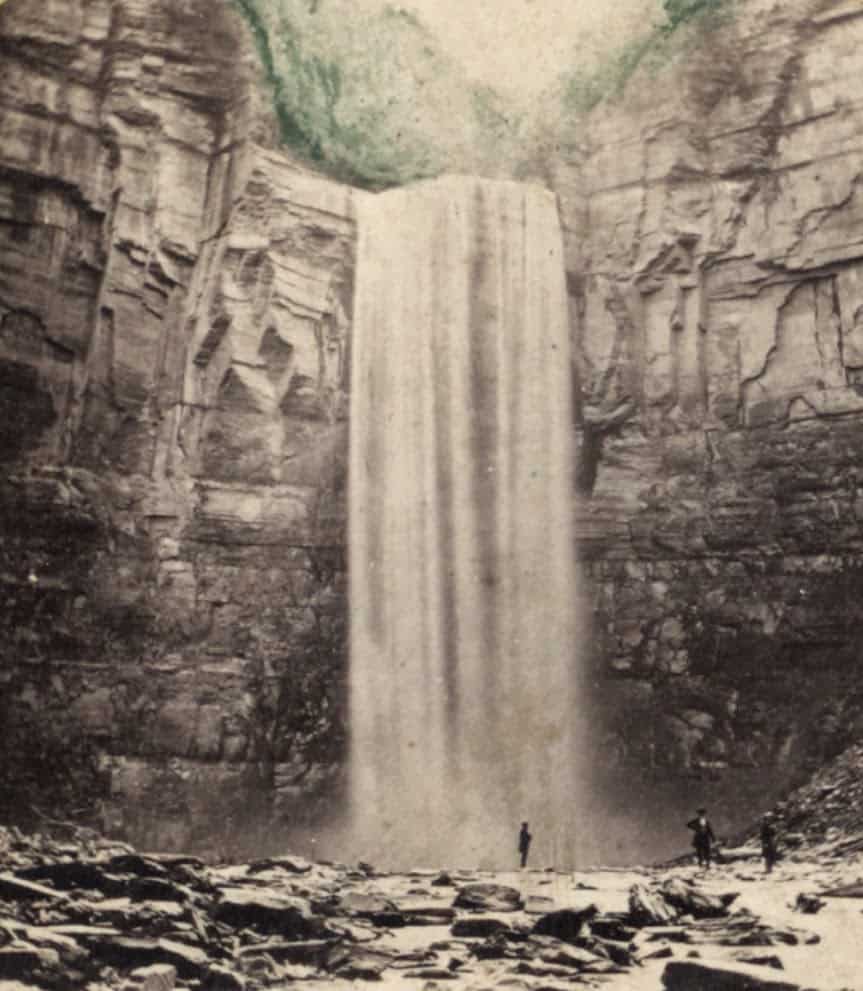Meet the Neighbors: Herman Ten Eyck Foster, Part 1
I had thought that Robert Swan was unusual in coming from a business background in New York City to farm in Seneca County. There was at least one other man, though, who came from New York City to farm. That man’s name was Herman Ten Eyck Foster, and thanks to Winterthur Museum, we have transcripts of his diaries from the 1840s.
We have a brief overview of Herman’s life from the memorial written by Abraham B. Conger, an ex-president of the State Agricultural Society. It was printed in the Proceedings of 1870, shortly after Herman’s untimely death. Born in 1822 Herman was the third son of Andrew Foster, a Scotch merchant, and Anna Ten Eyck, of a Dutch Albany family. At 15 he entered Columbia University and earned a BA. Though he tried being a merchant, “his tastes, and perhaps also a regard to his health, prompted him to the study of farming.” He spent a year on a farm near Ithaca, with the family of Aaron K. Owen, learning his new craft. In June 1843 he bought 250 acres on the east shore of Seneca Lake, and called it Lakeland. Lakeland was south of John Johnston’s farm Viewfields. In fall of 1844, Herman married Pauline Lentilhon. She was the daughter of Antoine Lentilhon, a French resident of New York City. Their marriage lasted for 4 ½ years, until she died. They had two daughters and a son. He never remarried.
Herman tells us about his early days in upstate New York in a lively diary: “May 3, 1842 – I felt, naturally enough, a little sad when I went to bed last night at the idea of being altogether alone among strangers without the prospect of seeing any of my friends for some months, yet I endeavored to overcome the feeling and succeeded pretty well…..” He received many letters from home and wrote many in return, often in French. Family and friends also visited him often. Still, he had a little trouble adjusting to country life. He subscribed to a newspaper, and said “It is astonishing, what patience one has when in the country to read even the advertisements.”
The Owenses were Quakers. Herman, who visited several different churches, tried the Quaker services in May. “Went this morning for the first time to Quaker meeting . . . no one spoke a word, the whole time, and my thoughts were very naturally directed to my friends at home. I do not think that their form of service is a good one, especially for the young people.” Despite his wandering thoughts, Herman attended a Quaker wedding in June. It was a very simple ceremony. “We had a short address from Mrs. Otis who is I believe a preacher. It was the first time I ever heard a female speak in public, the effect was very singular. …” Herman played his flute for his hosts, and observed that “Though they are Quakers, they have not as many of their prejudices as might be expected.” He was troubled, though, that “The quakers [sic] do not apparently think it wrong to visit on Sunday.” In general, Herman thought, the sermons in local churches did not measure up to those in New York City, and “I have come to the conclusion that most people in the country pay too little attention to the Sabbath.”
Herman plunged eagerly into farm work. On May 4, he had a plowing lesson, and found it easier than he expected. Nevertheless, on May 30, he reported that he broke the plow. He was amazed at the weight of the stones the farm workers could lift, but reflected that “it comes from habit.” In August Herman recorded the arrival of a threshing machine that went from farm to farm in the area. “The machine was put in motion by 5 horses, and required 14 hands, men and boys to tend it. Ordinarily it thrashes 200 bushels a day, and Mr. O. had to pay $3.50 a hundred bushels. We can not yet tell how many bushels we have, as it has not yet gone through the fanning mill. We expect it will amount to 400.” Mr. Owens had exchanged hands with several neighboring farmers, so he had to hire only one extra man for this job. Herman mentioned that the wheat was rusty, and the dust all over the workers turned them red. He began keeping records of the butter produced by three cows, “as well for my own satisfaction as for that of Mr. O.” He noted that he would draw a plan of the barn someday, because it was well-built and convenient.
Herman seems to have become close to one of the young Owens farm workers named Matthias. He often worked with Matthias, and mentioned him often in the diary. (Later Matthias appears working at Lakeland.) Apparently, Herman played the flute in his room, and Matthias objected. In August, Herman went away from the house on a fine night, and played his flute; “Matthias tells me he heard it as distinctly as if I had been in my room. I cannot help it, for music I must have.” Besides music, Herman refreshed his spirit by visiting Taughannock Falls, having tea and dinner with neighbors (the Strongs, the Delafields, and others,) reading biographies and travel accounts, singing in a church choir, and taking impressions of flowers. Always ready for new experiences, he worked the election in November as a clerk, and received 20 shillings – “this being the first money I ever earned.”
Up Next: Friends come to stay with Herman at the Owens farm
 |
| Taughannock Falls |
